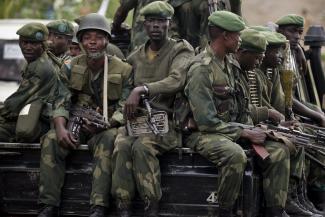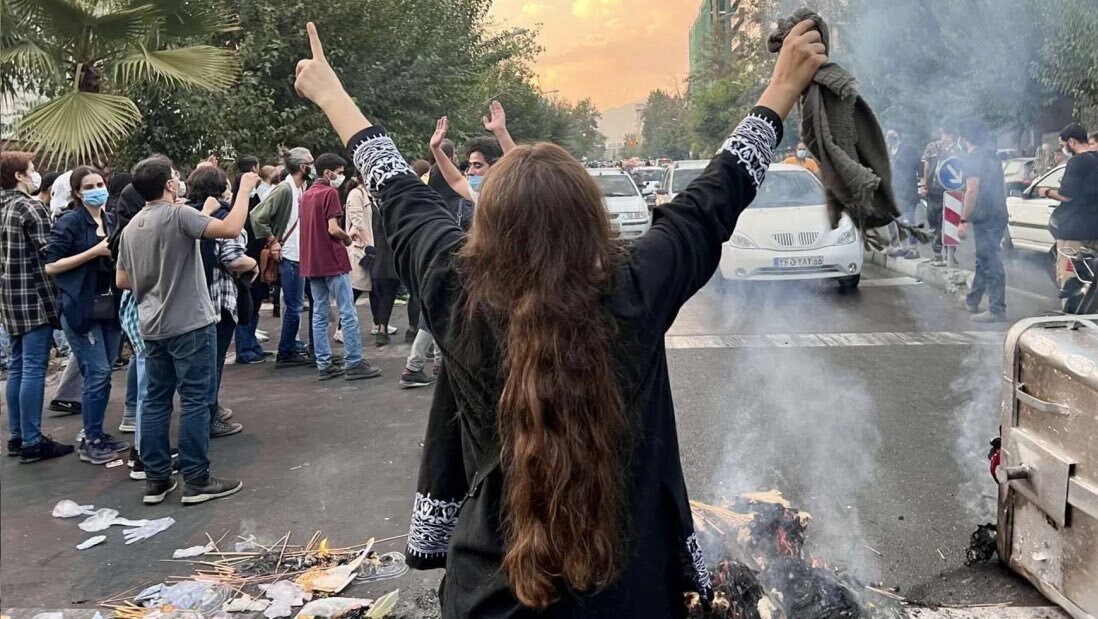News
In brief

No peace agreement for the eastern DRC
The government of the Democratic Republic of the Congo (DRC) and the rebel militia M23 failed to reach a peace agreement in November after extensive negotiations. The reason was that regular DRC troops, with UN support, managed to suppress the rebel forces after two years of fighting. The DRC government wants any peace agreement to acknowledge the current power situation, demanding that it must acknowledge the DRC military as the legitimate force and consider the other party to be failed insurgents. Journalists wrote that the term "peace agreement" was inappropriate in this context.
The core issue of the peace talks was the integration of rebels into the DRC’s regular security forces. This offer was not made to the rebel leaders, however, because they are accused of serious crimes.
The DRC government argues that the government of Uganda is partly to blame for the failure of the talks. In this view, Uganda failed to act as a neutral broker, and has been pursuing its own interests instead. The government of Uganda is unwilling to extradite rebels that have flown to its country.
Experts doubt that the victory over the M23 will lead to lasting peace in the strife-torn eastern DRC as some 40 rebel groups are still active there. Many M23 combatants have fled to Rwanda, whereas most of the leaders fled to Uganda. (bm)
Afghanistan is most dangerous country for women
Violence, lack of health care and poverty are the reasons why Afghanistan is the world’s most dangerous country for women, according to a study the Thomson Reuters Foundation recently published. The DR Congo comes in a close second, particularly because of sexualised violence. The authors also consider Pakistan, India and Somalia to be problematic. They list issues such as domestic violence, discrimination and, in Africa, female genital mutilation.
The report is based on interviews with 213 women’s rights experts from five continents. Human trafficking, cultural dimensions and religious rules were among the topics discussed. According to the study, women’s human rights are violated as a daily occurrence. At the same time, there is some progress. India, Bhutan, Nepal and Pakistan have either passed laws against domestic violence or are in the process of doing so. Other countries, including Namibia, Sierra Leone and Nicaragua, have set up all-female police units in order to better handle cases of rape and domestic violence.
The Foundation published a separate report for the Arab world. Three years after the uprisings of the Arab spring began, Egypt is considered the regions’ most dangerous country for women. (bm)
Global report on women’s rights
Report on women’s rights in Arab world
Declining child mortality
A recent report published by the international non-governmental organisation Save the Children inspires hope. It states that the mortality rate of children under five has almost halved in recent years, so the Millennium Development Goal of reducing the figure by two thirds from 1990 to 2015 seems attainable.
Save the Children praises Niger in particular. In spite of scant resources and recurrent draughts, the NGO states that Niger has a real chance of achieving this MDG. Due to sustainable and equitable measures, child mortality was reduced for all sections of the people, both in rural and urban areas.
Save the Children calls on governments all over the world to promote measures of proven effectiveness such as vaccinations and the treatment of pneumonia, malaria and diarrhoea. The agency also wants governments to fight malnutrition by ensuring that all children get enough and healthy food. The publication warns that inequality is becoming more pronounced in many world regions even as child mortality is declining. Especially in sub-Saharan Africa,
the gap between prosperous and poor children is said to have widened form 1998 to 2008. (bm)
Climate summit unimpressed by Taiphoon
Taiphoon Haiyan wreaked havoc in the Philippines in early November. In the Leyte region, matters were still chaotic when D+C/E+Z went to print in late November. The authorities estimated that some 5000 people had been killed, but more dead bodies were still being found. Many international relief agencies were active in the devastated areas.
Shortly after the storm, the UN climate conference began in Warsaw. Participants showed concern for the Philippines, but only achieved meagre results. They confirmed that a comprehensive global climate deal is to be struck in Paris in 2015. According to Christiana Figueres, the head of the UNFCCC secretariat, human kind is on track to an agreement, but not to keeping global temperatures from rising by more than two degrees. Japan and Australia announced they would not live up to past pledges for reducing emissions.
One of the results in Warsaw was that countries will start making proposals for agreement language next year and indicate what emission reductions they consider appropriate. UN Secretary-General Ban Ki-moon promised to host a special summit in September on the matter next year. Moreover, the Warsaw conference established a task force for drafting plans on financing the Green Climate Fund, which is supposed to provide an $ 100 billion to developing countries to cope with climate change and mitigate the phenomenon. The Warsaw summit also agreed on tackling the issue of damages and losses that result from climate change, but no financial commitments were made so far. (sb/bm)
Deadly impact of pollution
A new environmental toxin report assesses the impact of environmental pollution on human health. It was published by the Swiss Green Cross foundation and the non-profit, New York-based Blacksmith Institute. The authors point out that African and Asian countries are most affected by pollution. Some 200 million people around the world are said to be at risk because of poisoned environments.
Contamination with lead, mercury or pesticides has devastating consequences, the report argues. In developing countries, a quarter of all deaths and 80 % of all illnesses are linked to some kind of ecological damage, according to Green Cross and Blacksmith Institute. There is a global dimension too, the authors warn. Inappropriate handling of mercury, for instance, means that this toxic substance enters the food chain and may contaminate food eaten in Europe. The report demands that action be taken fast. Disposing of toxic substances in a responsible manner is a huge challenge, the authors admit, but rising to it is cheaper than coping with environmental damage. (bm)
Environmental toxin report 2013








